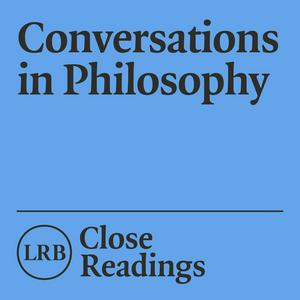Jonathan Rée and James Wood challenge a hundred years of academic convention by reuniting the worlds of philosophy and literature, as they consider how style, narrative, and the expression of ideas play through philosophical writers including Kierkegaard, Mill, Nietzsche, Woolf, Beauvoir and Camus.
James Wood teaches literature at Harvard University and is a staff writer for The New Yorker as well as a contributor to the London Review of Books. His books include How Fiction Works, The Broken Estate and The Irresponsible Self.
Jonathan Rée is a frequent contributor to the London Review of Books and a freelance writer and philosopher. His most recent book on philosophy is Witcraft: The Invention of Philosophy in English.
Non-subscribers will only hear extracts from these episodes. To listen in full, and to all our other Close Readings series, sign up:
Directly in Apple Podcasts: https://lrb.me/applecrcip
In other podcast apps: https://lrb.me/closereadingscip
Get in touch:
[email protected]

